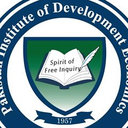Tobacco Exposure as Determined by Serum Cotinine and Subclinical Myocardial Injury in Individuals Free from Cardiovascular Disease.
Keywords
Abstract
Tobacco exposure including second-hand smoke is the leading preventable cause of premature death in the United States. Serum cotinine, a highly sensitive and specific biomarker for tobacco exposure, is a more accurate measure of tobacco exposure than self-reported smoking status. Although the harmful effect of tobacco exposure on cardiovascular disease (CVD) risk factors (e.g., atherosclerosis) or hard CVD outcomes (e.g., myocardial infarction) is well established, its effect on intermediate outcomes such as subclinical myocardial injury (SMI), especially in nonsmokers, is not clear. Therefore, we examined the risk of SMI, defined as a Cardiac Infarction/Injury Score of ≥10 points on the 12-lead electrocardiogram with abnormal serum cotinine levels (>15 ng/ml) in 6,264 smokers and nonsmokers who were free from CVD enrolled in the Third National Health and Nutrition Examination Survey. SMI was more common in those with abnormal compared with normal serum cotinine levels (25.9% vs 19.6%, respectively; p <0.01). In a multivariable logistic regression model adjusted for age, gender, race, obesity, diabetes, hypertension, and dyslipidemia, abnormal (vs normal) serum cotinine was associated with a 61% increased risk of SMI (odds ratio 1.61, 95% confidence interval 1.40 to 1.85, p <0.01). This association was stronger in smokers, in women, and in nondiabetic and nonobese participants. In conclusion, elevated serum cotinine levels are associated with an increased risk of SMI in participants free from CVD, and this association is stronger in certain groups of participants. These findings underscore the harmful effect of both active and passive tobacco exposures on the cardiovascular system, and highlight the need for a personalized risk assessment that takes into account groups at high risk.



